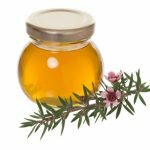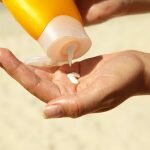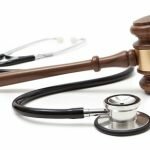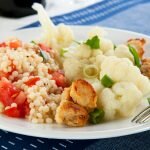Take These Natural Measures to Prevent and Treat Gallstones
Gallstones are solid lumps or stones that form in the gallbladder or bile duct. They are formed when some of the chemicals stored in the gallbladder harden into a mass. One large stone may develop, or a lot of tiny ones.
Bile contains cholesterol, bile salts and waste products like bilirubin (a pigment formed from the breakdown of old red blood cells). Gallstones form when these substances are out of balance.
There are two basic types of gallstones:
1. Cholesterol gallstones are the main type in the UK and form if you have too much cholesterol in your bile.
2. Pigment gallstones form when there is too much bilirubin in your bile. These gallstones tend to develop if you have liver disease, infections in your bile tubes or inherited blood disorders such as sickle-cell anaemia (your red blood cells are a different shape and this affects the amount of oxygen they can carry around your body).
Symptoms of gallstones
Most gallstones cause no symptoms at all and you may not even be aware you have them. Gallstones that don’t cause any symptoms usually don’t need any treatment.
However, gallstones can irritate the lining of your gallbladder and they can get stuck in your bile duct causing an attack of abdominal pain that:
* develops quickly
* is severe
* lasts about one to three hours before fading gradually
Other symptoms of gallstones may include:
* feeling sick or vomiting
* sweating
* restlessness
* jaundice (yellowing of your skin or the whites of your eyes)
* acute pancreatitis.
How the mainstream treats gallstones
Mainstream medicine would have you believe that you only have a few options to treat gallstones ?? of which most are invasive and have unpleasant side effects. These include:
* Surgery: gallbladder removal is the most common treatment for gallstones. However, the doctor recommending gallbladder surgery will probably not tell you that it increases your risk of bowel and colon cancer and also increase blood cholesterol levels. Removing the gallbladder can also cause severe indigestion. The reduced absorption of fat can also cause diarrhoea.
* Non-surgical treatment: Dissolution uses medicines such as ursodeoxycholic acid to dissolve the gallstones but this isn’t suitable for everyone and may take a very long time. Ursodeoxycholic acid can cause nausea, vomiting, diarrhoea and itching of the skin. A second non-surgical treatment is shock-wave lithotripsy which uses high-energy sound waves to break gallstones into tiny fragments, which can then be dissolved by medicines.
Natural ways to prevent and treat gallstones
Before you become one of the 500,000 people who will undergo gallbladder surgery this year, take a look at the following all-natural ways to prevent and treat gallstones:
World renowned alternative medicine guru, Dr. Andrew Weil believes that since most gallstones are composed of cholesterol, diet plays a role in their formation. Therefore, if you are at risk of developing gallstones (risk factors include a family history of gallstones, being overweight, recent rapid weight loss and, among women, pregnancy, using birth control pills, or hormone replacement therapy after menopause), you may be able to prevent them or prevent symptoms from worsening with these measures:
* If you need to lose weight, do so slowly (crash dieting can lead to gallstone formation).
* Drink plenty of water throughout the day to keep hydrated – this can help keep the bile in your gallbladder fluid.
* Make sure you get a daily intake of 1,000 to 1,200mg of calcium from all sources. Women should consider taking 500-700mg of calcium in supplement form. This can help bind bile acids and decrease the risk of stone formation. However, men should limit calcium consumption to 500-600mg from all sources.
* Take 300mg of curcumin (an active component of the yellow spice turmeric) three times a day to increase the solubility of your bile. Choose a product standardized for curcuminoid content.
* Take 200mg of supplemental vitamin C daily (in one study women with higher blood levels of vitamin C were half as likely to develop gallstones as those with lower levels).
* Keep your fat intake to about 25 per cent of daily calories. A high-fat diet can trigger the gallbladder to release bile and set off an attack if you already have gallstones. But be wary of very low-fat diets, which can promote the formation of stones by failing to stimulate normal gallbladder contraction and flow of bile.
* Limit your intake of sugar, which may promote gallstone formation.
* Increase your fibre intake, and substitute whole soy protein for animal protein in your diet.
The following foods can help to naturally remove gall stones and sediment.
* Turmeric – About half teaspoon daily of the powder
* Raw Beetroot juice
* Radish – 6 a day
* Lime, Apple, Pear, Grapefruit – 1 a day
* Chamomile and Cleavers Tea
Here is a list of recommended foods to eat which may help to prevent gallstones: alfalfa, apples, artichokes, barley, beets, broccoli, carrots, celery, fennel, grapefruit, horseradish, lemons, mustard greens, olive oil, radishes, spinach greens, water chestnuts, watermelon, garlic and fish. If you eat meat, then opt for chicken or turkey which are low in cholesterol.
Did you find this information useful?
Then why not get more expert health recommendations just like this delivered direct to your inbox?
"It is truly refreshing to read a newsletter on the topic of alternative medicine which is scientifically based and reviewed by professionals..." - Robert Sinott
We respect your privacy and will never share your details with anyone else.Sources:
??Gallstones ?? by Dr Rob Hicks, published online, bbc.co.uk
??Gallstones ?? Published by Bupa’s health information team, April 2009, hcd2.bupa.co.uk
??Gallstones ?? published online, patient.co.uk
??Dietary Advice To Help Lower Your Risk Of Gallstones ?? by Agora Lifestyles, published online 01.09.01, thehealthierlife.co.uk
??Gall Stones Prevention Diet: A Natural Treatment Through the Foods You Eat ?? by Joe Barton, published online 24.07.2007
??8 Ways to Prevent Gallstones ?? by Dr. Weil, published online 25.11.09, drweil.com
??Natural Remedies for Gallstones ?? published online, regenerativenutrition.com












